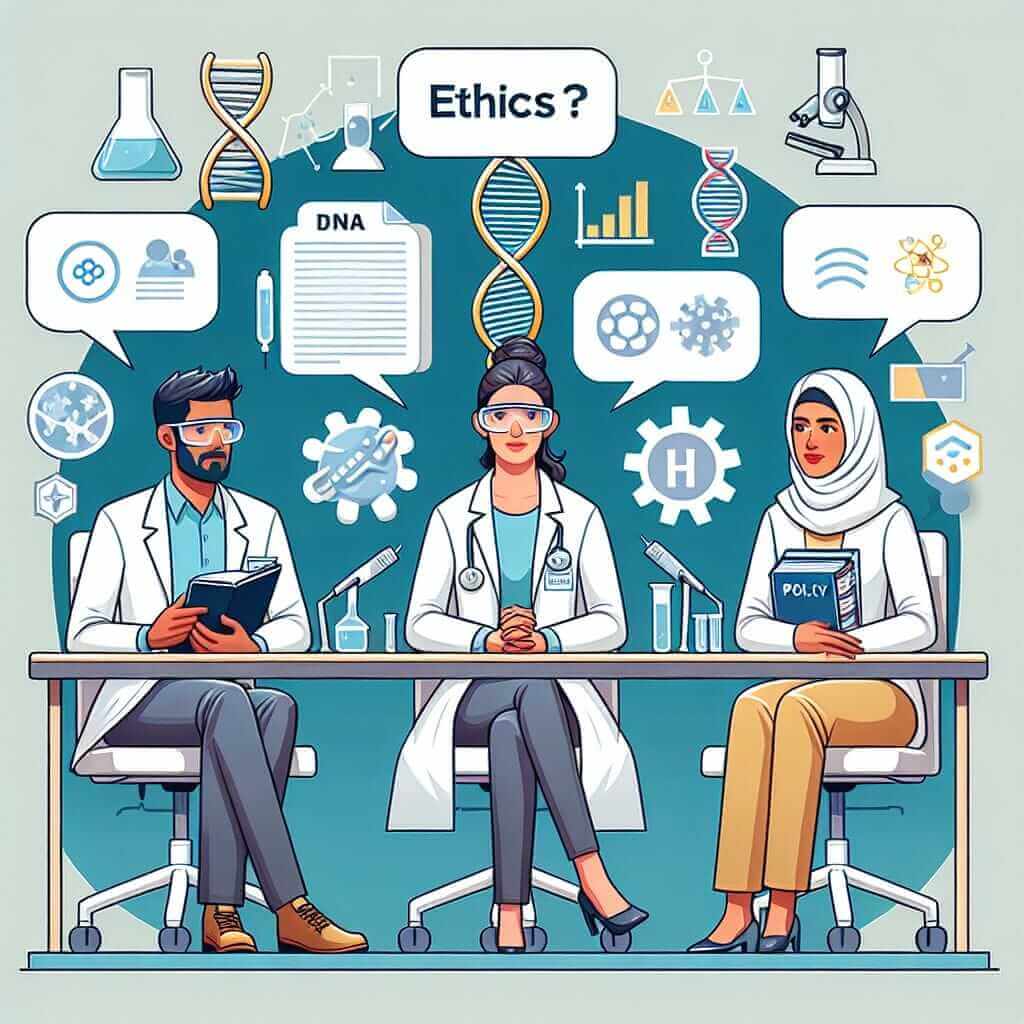The IELTS Reading test is a challenging section that evaluates your ability to understand and analyze a variety of texts. This article provides you with a comprehensive reading passage and corresponding questions based on the timely and controversial topic of gene editing technologies. Historically, topics related to scientific advancements and their social implications have been prevalent in IELTS exams, making this practice simultaneously engaging and relevant.
Reading Passage: The Social Implications of Gene Editing Technologies
Passage
The field of gene editing has witnessed groundbreaking advancements over the past decade, particularly with the advent of CRISPR-Cas9 technology. These innovations have opened up unprecedented possibilities for altering the genetic makeup of living organisms, including humans. However, as with any powerful technology, gene editing comes with substantial social implications that ignite both strong support and vehement opposition.
Firstly, the potential for gene editing to eliminate hereditary diseases holds significant promise. Genetic disorders such as cystic fibrosis, muscular dystrophy, and sickle cell anemia could potentially be eradicated, vastly improving the quality of life for millions of people. Proponents argue that this could also reduce the economic burden on healthcare systems worldwide.
Conversely, the ethical considerations cannot be ignored. Critics express concerns that gene editing could lead to a new form of eugenics, where the wealthy can afford to design their offspring with superior traits, while those less affluent are left behind. This could exacerbate social inequalities, creating a genetic divide between the rich and the poor.
Moreover, the long-term consequences of gene editing are largely unknown. Unlike traditional medical treatments that can be halted or reversed, genetic modifications are permanent and can be passed down to future generations. This raises questions about the moral responsibility of making irreversible changes to the human genome.
Lastly, there is the issue of consent. Editing the genes of embryos or using germline modifications means making decisions for individuals who cannot yet provide their consent. This presents a significant ethical dilemma and necessitates stringent regulatory frameworks to ensure responsible use of gene editing technologies.
The debate around gene editing is ongoing and reflects broader societal questions about the limits of human intervention and the ethical boundaries of scientific progress. Balancing the potential benefits with the associated risks will require careful consideration and inclusive dialogue among scientists, ethicists, policymakers, and the public.

IELTS Reading Practice Questions
Questions
Identifying Information (True/False/Not Given):
- The potential for gene editing to cure genetic disorders is universally accepted.
- Only the wealthy can currently afford gene-editing procedures.
- Gene editing modifications are reversible.
- There is concern about the long-term effects of gene editing on future generations.
- Consent is a major ethical issue in the use of gene editing on embryos.
Summary Completion:
Complete the summary using the list of words below.
Although gene editing technology has shown promise in eliminating (1) such as cystic fibrosis, it raises ethical questions about (2). There is worry that it could create a genetic divide between the wealthy and the poor, leading to increased (3). Additionally, the (4) of altering the human genome without individuals’ consent is a contentious issue.
Words: hereditary diseases, eugenics, social inequalities, moral responsibility, permanent changes
Answer Keys
Identifying Information (True/False/Not Given):
- False – The passage states both strong support and opposition.
- Not Given – The passage discusses the potential for creating a genetic divide but does not specify current affordability.
- False – The passage states genetic modifications are permanent.
- True – The passage mentions unknown long-term consequences.
- True – The passage discusses the issue of making decisions for individuals who cannot consent.
Summary Completion:
- hereditary diseases
- eugenics
- social inequalities
- moral responsibility
Common Mistakes and Tips
Mistakes
-
Ignoring Specific Details:
- Students often misinterpret key details in the text. For example, assuming that technical affordability implies broader accessibility.
-
Vocabulary Misunderstanding:
- Misreading or misunderstanding critical terms like “irreversible” or “economic burden” can lead to incorrect answers.
Tips
-
Read the Questions First:
- Understand what is being asked before diving into the passage to better focus your reading.
-
Practice with Diverse Topics:
- Engage with a variety of topics, including scientific advancements, to build familiarity and comprehension speed.
-
Annotate:
- Make brief notes or underline key points as you read to keep track of important information quickly.
Vocabulary Focus
- Hereditary (adj): /həˈred.ə.ter.i/
- Passed from the genes of parents to their children (e.g., hereditary diseases).
- Eugenics (noun): /juːˈdʒɛnɪks/
- The science of improving a population by controlled breeding for desirable inherited characteristics.
- Affluent (adj): /ˈæf.lu.ənt/
- Having a great deal of money; wealthy.
- Irreversible (adj): /ˌɪr.ɪˈvɜː.sə.bəl/
- Not able to be undone or altered.
Grammar Focus
Dependent Clauses
Formula:
- A dependent clause (subordinate clause) does not stand alone as a sentence but provides additional information to the main clause.
Example:
- “Although gene editing technology has shown promise in eliminating hereditary diseases, it raises ethical questions about eugenics.”
Usage:
- Use dependent clauses to add depth to your writing, explaining conditions, results, contrasts, etc.
Conclusion
To excel in the IELTS Reading section, immerse yourself regularly in diverse practice texts on contemporary issues like gene editing technologies. Enhance your vocabulary, practice identifying different types of questions, and remember to manage your time efficiently during the test. With consistent practice and attention to detail, you can effectively improve your IELTS Reading score.